Best water leak detectors
The best water leak detectors can save you hundreds or thousands of dollars in repairs
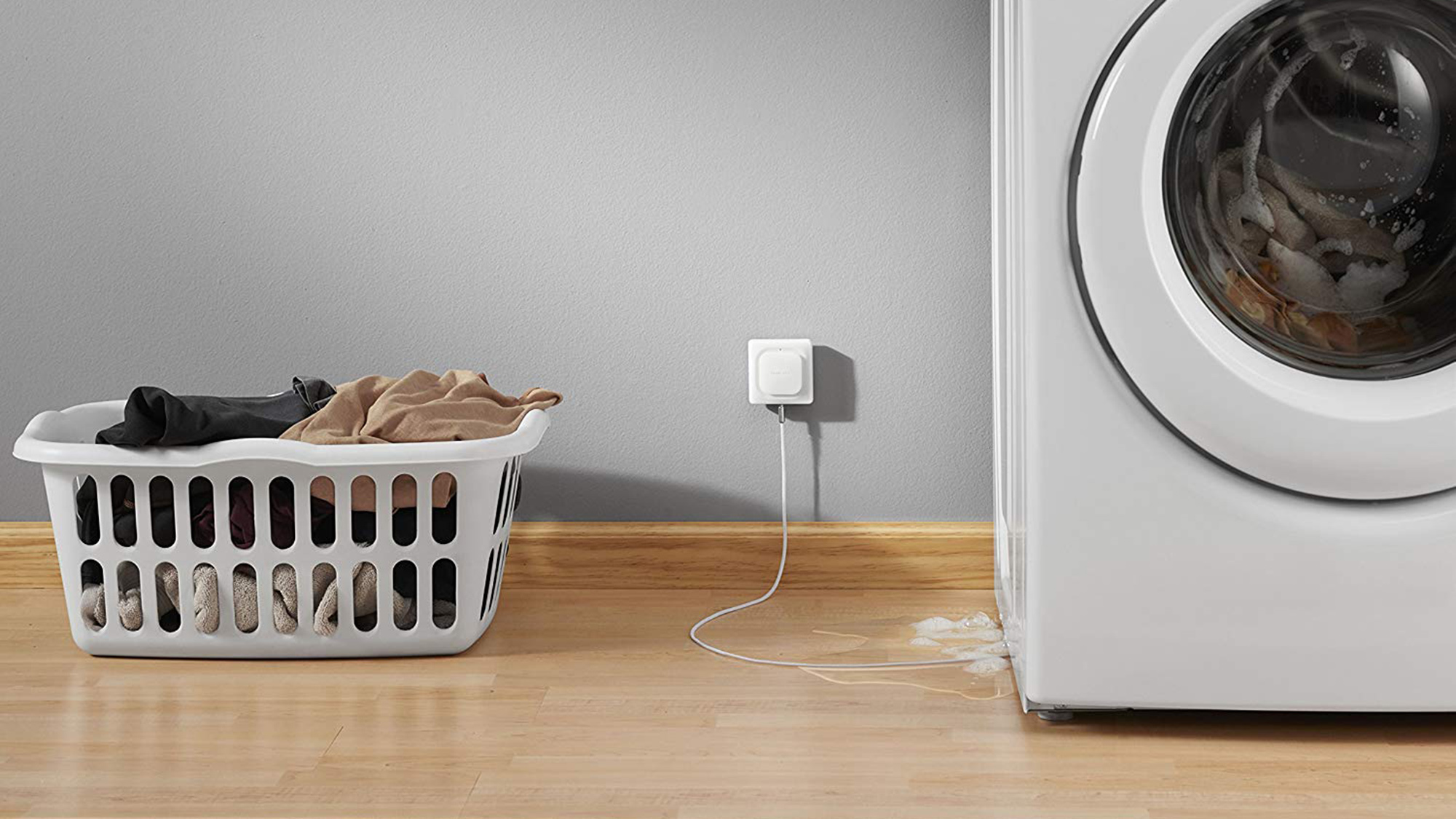
A burst pipe or water leak is one of the biggest threats to homeowners, potentially causing thousands of dollars of damage. Not only will you have to repair the leak, but you'll have to contend with replacing walls, mitigating mold, and throwing out lots of waterlogged items. One of the best water leak detectors can help prevent this from happening by sensing temperature and water leaks, and alerting you if anything is wrong — before it becomes a major problem.
There are two types of water leak detectors in this guide. The first are sub-$100 devices that you place near pipes, water heaters, and other places where you're likely to get a leak. If they sense water, they'll send you an alert, but it'll be up to you to manually turn off your water.
While none of the water leak detectors we tested truly stood out among the others, our favorite model among this type of water leak detector is the Flo by Moen Smart Water Detector. In addition to leaks, it can also measure the humidity levels as well as the temperature — important to know if your basement or other area is in danger of freezing. It can warn you in the app and emits an alarm when it detects water. And, if you decide to upgrade to a Moen water leak detector that can shut off your water automatically, this sensor can be linked to it.
The second type of water leak detector — the one with a built-in shutoff valve — costs upwards of $400 and needs to be professionally installed, but in the event of a leak, it can automatically shut off the water coming into your home. These models can also monitor the flow of water through your pipes to detect leaks behind your walls and recommend ways to conserve water — and lower your utility bill.
For this, we like the Flo by Moen, which can fit three sizes of water lines, and can show you your water usage by fixture. The FloProtect service ($5/month) adds professional monitoring and live-chat support, and will cover the cost of your deductible (up to $5,000) if there's water damage.
The quick list
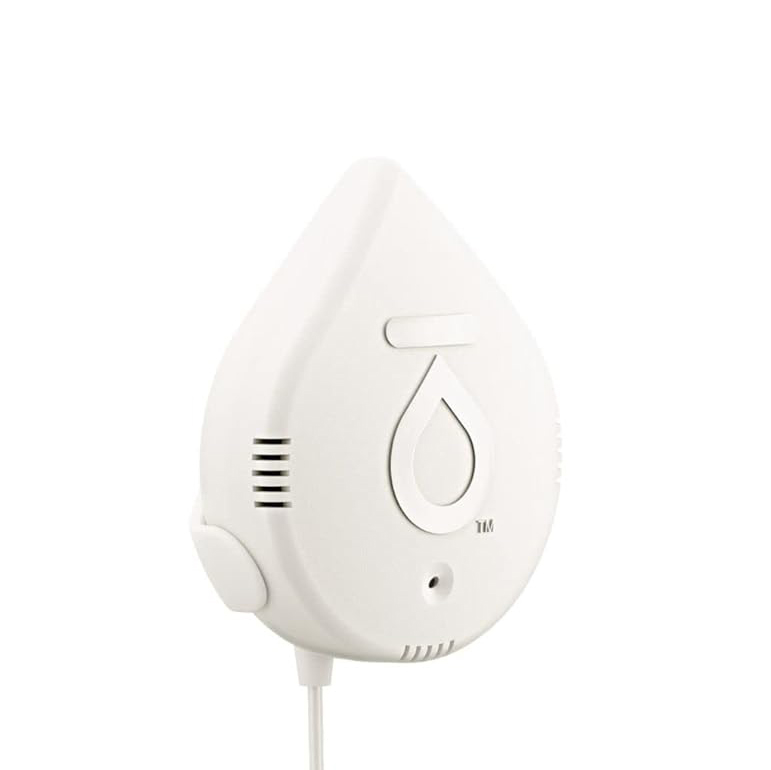
This device senses leaks, temperature, and humidity, and emits an 85-decibel alarm when it detects water. It also works with with Alexa, Google Assistant, and other smart home systems.
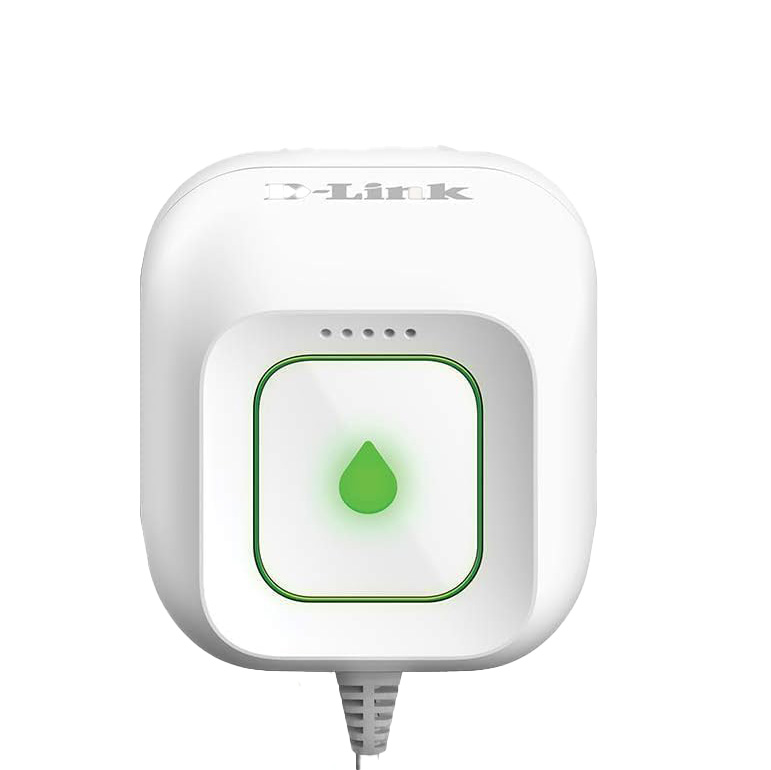
D-Link's water leak detector can be linked to up to 16 sensors, allowing you to cover a huge area for not that much. We just wish it worked with Alexa.
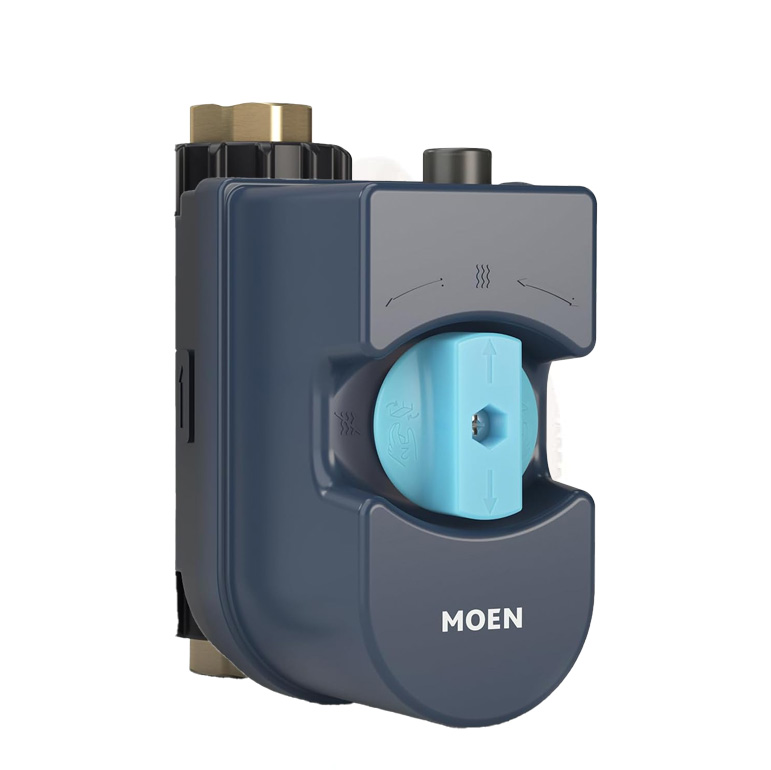
This device can automatically shut off your water if it detects a leak. It will also analyze your water use and provide tips for conserving water. And, it may save you on insurance, too.
The best water leak detectors you can buy today
Why you can trust Tom's Guide
Best overall
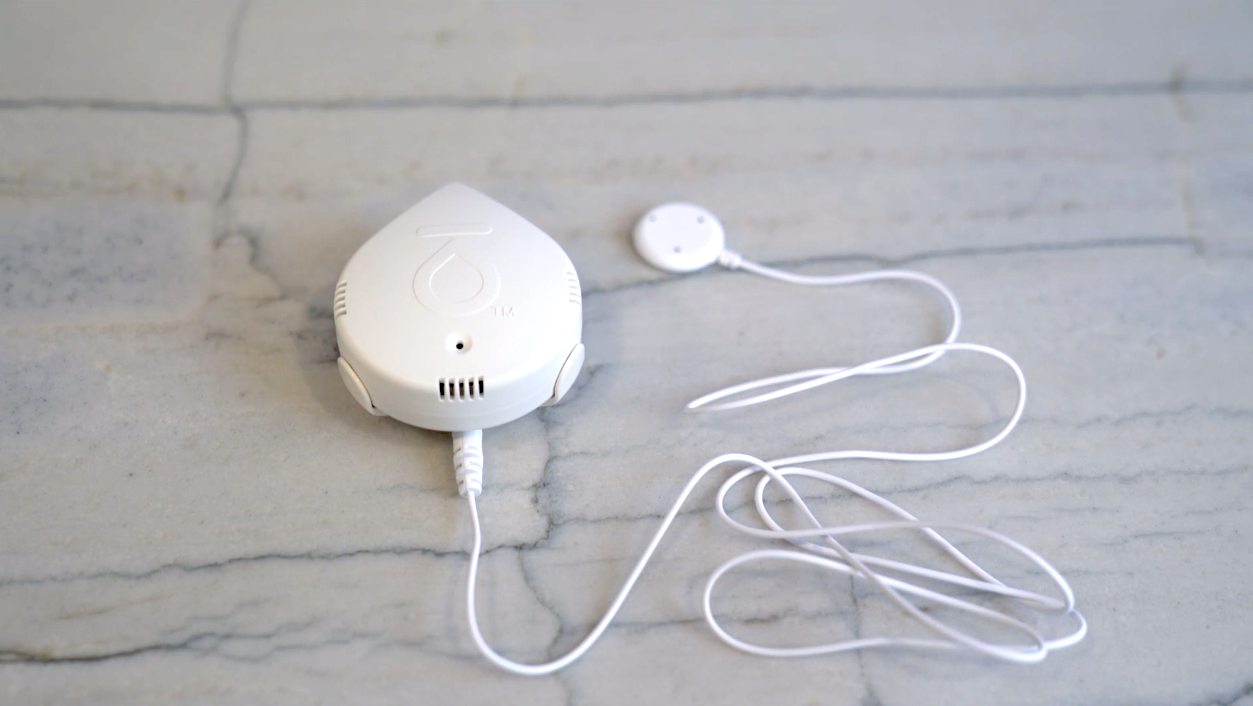
1. Flo by Moen Smart Water Detector
Our expert review:
Specifications
Reasons to buy
Reasons to avoid
Aptly, Moen’s Smart Water Leak Detector is shaped like a raindrop. Measuring 3.3 x 2.6 x 1.5 inches, you can fit it nearly anywhere. The more rounded side of the device has a port for the included 4-foot sensing cable. Also included is a small bracket, so you can mount the device to a wall. On one side of the device are three small metal contacts; when they get wet, they’ll trigger the device to send you an alert.
Unlike FirstAlert’s extension cable, which can detect water along its entire length, Moen’s can only sense moisture at the small disk at the end of the cable. And, you can only extend the length of Moen’s cable to a maximum of 18 feet, compared to 500 for the FirstAlert.
Moen’s device was a cinch to set up in the Moen app; I was up and running in minutes. You can also link it to Alexa to integrate it into your smart home, but there’s no support for Google Home. Moen says the CR123A battery in the device should be good for up to two years; I’ve used it for several months, and the battery has remained at 100%.
When it senses water, it sends an alert to your smartphone and emits a 51-dB siren. While I found Moen’s claim to be pretty accurate — I measured 50dB from six feet away — it was a pretty puny siren compared to the 100dB siren in the FirstAlert L1.
While Moen’s water leak detector can’t shut off water on its own, you can link it to the Flo by Moen shutoff valve, which will turn off the water into your home in the event it detects a leak. FirstAlert has a similar system, but the Flo can also analyze the flow of water in your home, and look for any potential leaks that other sensors might miss.
If connected to its water shutoff valve, the Moen Smart Water Leak Detector could be a powerful tool to keep your home safe from leaks. However, despite its lower price — and the fact that it works with Alexa — it’s less effective on its own than the FirstAlert L1.
Loudest alarm
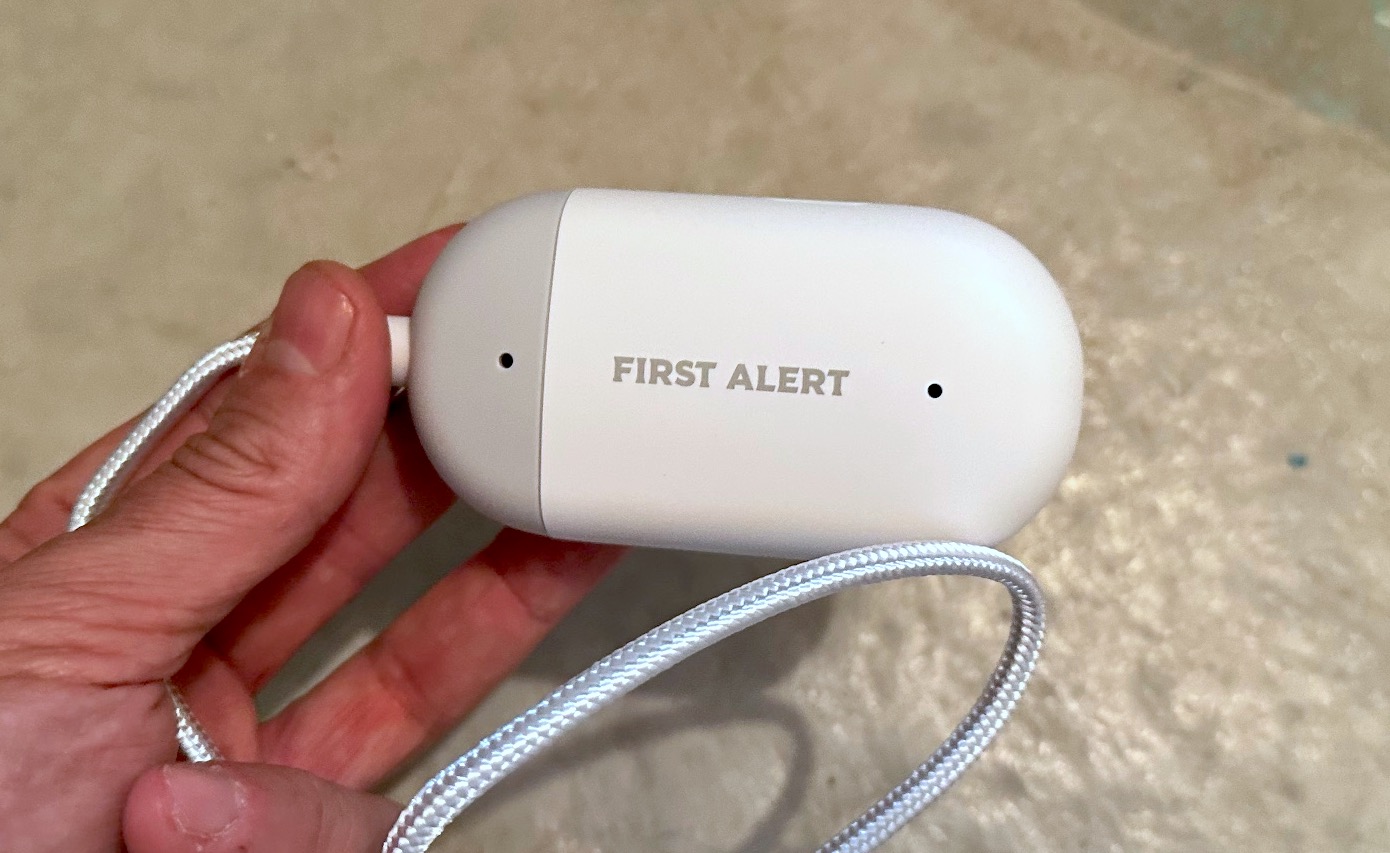
2. FirstAlert L1 Wi-Fi Water Leak & Freeze Detector
Our expert review:
Specifications
Reasons to buy
Reasons to avoid
The oval device looks like an overly large earbuds case, measuring 3.9 x 2 x 1.1 inches, about twice the size of the Moen Smart Water Leak Detector. It’s all white, save for one of the long ends, which is gray. On this side, there’s a small removable cap to attach a 5-foot cable sensor, which you can buy with the device as a bundle for $70. You can purchase additional cables and attach them (to a max of 500 feet), so you could theoretically have just one sensor and a single cable snaking around the entire floor of your basement. Where Moen’s cable only detects water at its end, the L1 can sense water along its entire length.
The bottom of the main body of the device has two small metal sensors that will also trip the alarm if water touches both; the device also has small feet to slightly elevate it; while it’s IP44-rated against splashing water, it’s not meant to be submerged. If you’re worried about it getting wet, you can attach it to a wall using the included screw. The bottom of the case pops off to reveal the battery compartment; two AA batteries are included, which the company says will last up to two years.
To connect the sensor to Wi-Fi, you have to install an app on your phone; annoyingly, the included instructions didn’t include a QR code to download the app. In fact, the instructions tell you to install the Resideo app, but when I did so, I was then instructed to download the First Alert app instead. After that rigamarole, it was a simple matter of connecting the device to my phone via Bluetooth and then to my Wi-Fi network. However, it took several minutes before the device appeared in the app, which was also frustrating.
After that, it worked fine, showing me the temperature and humidity. FirstAlert says its detector has a 100-dBa alarm; in my testing, I registered around 80dB from about six feet away, but that was twice as loud as Moen’s detector; regardless, it might be hard to hear either from a floor or two away. However, the L1 doesn’t work with any smart home systems like Alexa or Google Home.
Similar to Moen, Resideo also offers a shutoff valve that can be paired with the L1, so that it automatically turns off the water coming into your house if a leak is detected. However, it’s less sophisticated, so it can’t monitor your entire system to analyze where you might be wasting water, and you can only buy it from a licensed plumber.
At $70, the FirstAlert L1 is about $15 more expensive than a comparable unit from Moen, and it doesn’t work with any smart home assistants. However, its alarm is louder, and I like that it can detect water all along its cable, rather than just at the end.
Best for large homes
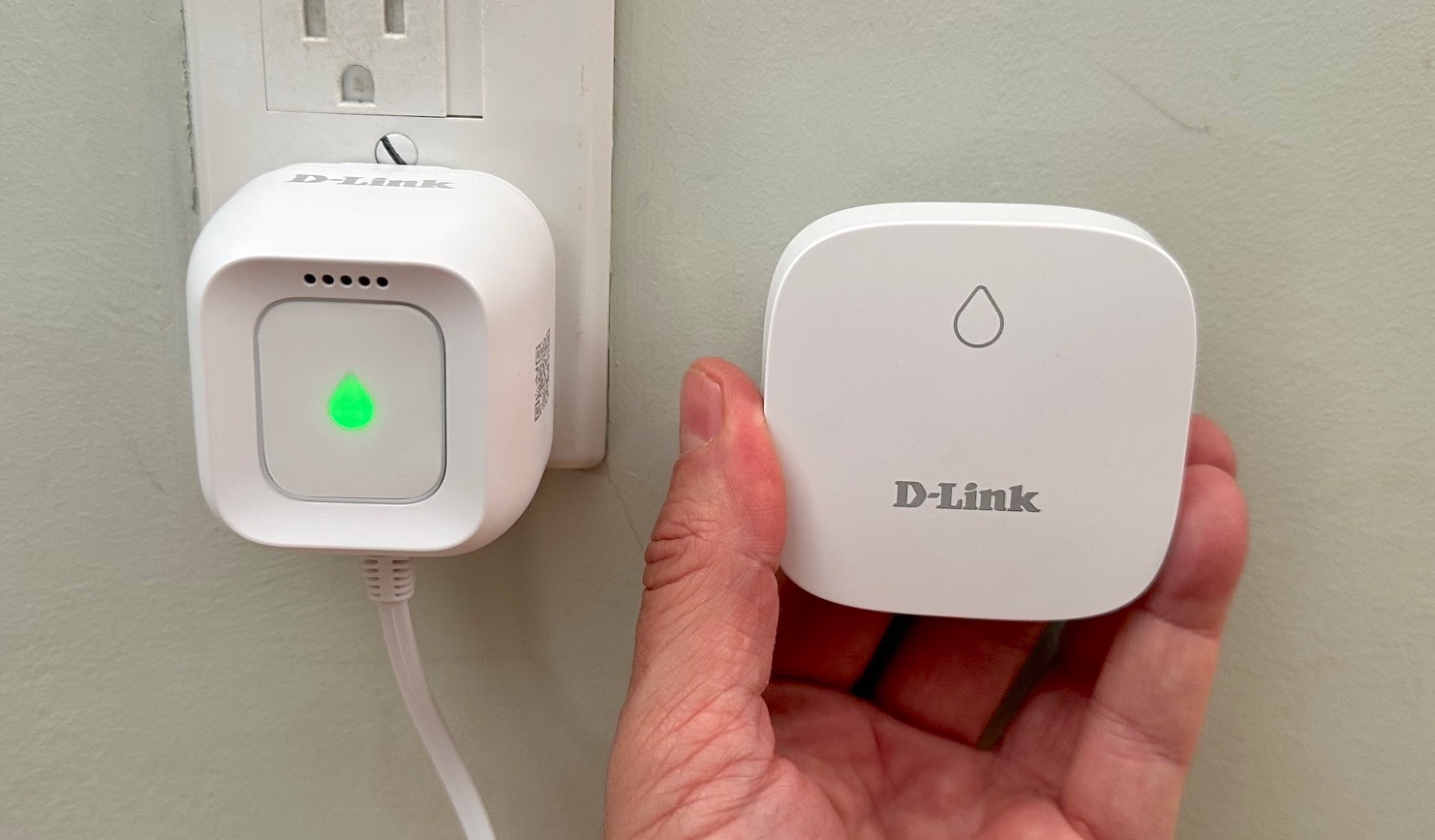
3. D-Link Wi-Fi Water Leak Sensor and Alarm Starter Kit
Our expert review:
Specifications
Reasons to buy
Reasons to avoid
Where Moen’s and FirstAlert’s water leak detectors are standalone units, D-Link’s water leak detector comes in two parts: A hub and a standalone sensor pod. The hub itself needs to be plugged into an outlet, but, with an included sensing cable, can also detect water leaks. The cable itself is pretty dinky at just 1.6 feet long, but it connects to the hub via a 3-foot extension cable, so you get a bit further reach.
Fortunately, you don't have to rely on this wire alone; you can link up to 16 sensor pods to the main hub, and they can be as far as up to 900 feet away from the main hub. Additional sensors cost $25 each, and have a battery life of up to two years. You can replace their two AAA batteries, but you have to remove four very small screws to do so.
To set up the device, you first plug the hub into an outlet, then scan a QR code on its side. Using the MyD-Link app, you then connect the hub to your home’s W-Fi network. In all, it took no more than 10 minutes.
In the event the hub (or a sensor pod) detects water, you’ll get an alert on your phone, and the hub will emit a loud beeping sound. From about six feet away, the alert tone measured about 68 dB, which was louder than Moen’s, it was quieter than FirstAlert’s. However, you can place the D-Link hub in a more central location in your house, making it more likely that you’ll hear if something is amiss.
Unlike the detectors from Moen and FirstAlert, which can tell you the temperature and humidity, D-Link’s water leak detector only senses when there’s a water leak, so you won’t get alerted if there’s the potential for a frozen pipe. And, D-Link does not offer a water shutoff valve, so it’s up to you to act if there’s a leak. However, you can connect D-Link’s sensors to both Alexa and Google Home, so that you can at least get an alert on your smart speaker of choice.
Best premium
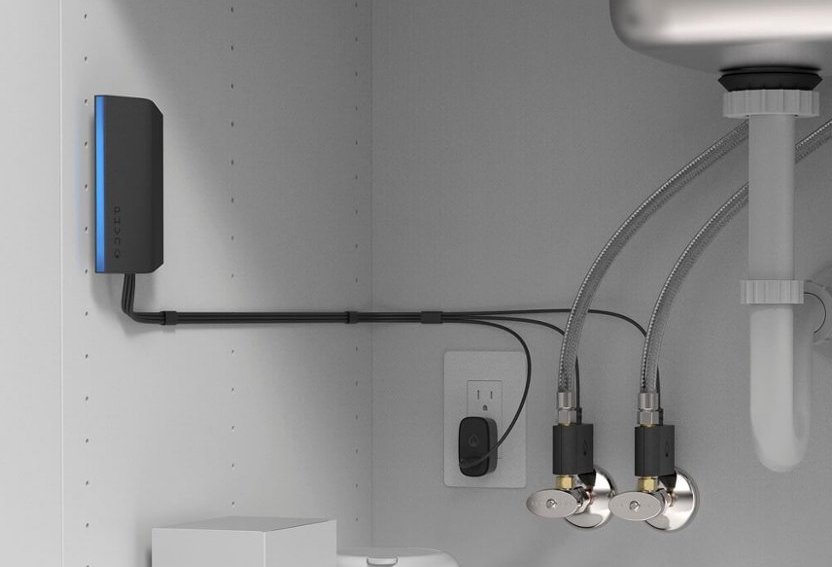
4. Phyn Smart Water Assistant
Specifications
Reasons to buy
Reasons to avoid
For those whom the Phyn Plus Smart Water Assistant + Shutoff valve is too expensive, the Phyn Smart Water Assistant could be the answer. This device, which costs less than half the price, does everything the Phyn Plus does, except for having an automatic shutoff valve.
Like the Phyn Plus, the Phyn senses the water pressure in your home, can detect when there's a drop in pressure and using algorithms, can let you know if it's being caused by a burst pipe or just a leaky toilet. Because it doesn't include a shutoff valve, the Phyn can be easily installed by a homeowner, under any sink. The one caveat is that you'll also need a power source nearby. But, the Phyn could save you money over the long haul, even if you don't have a major catastrophe.
Best water leak detector with shutoff valve
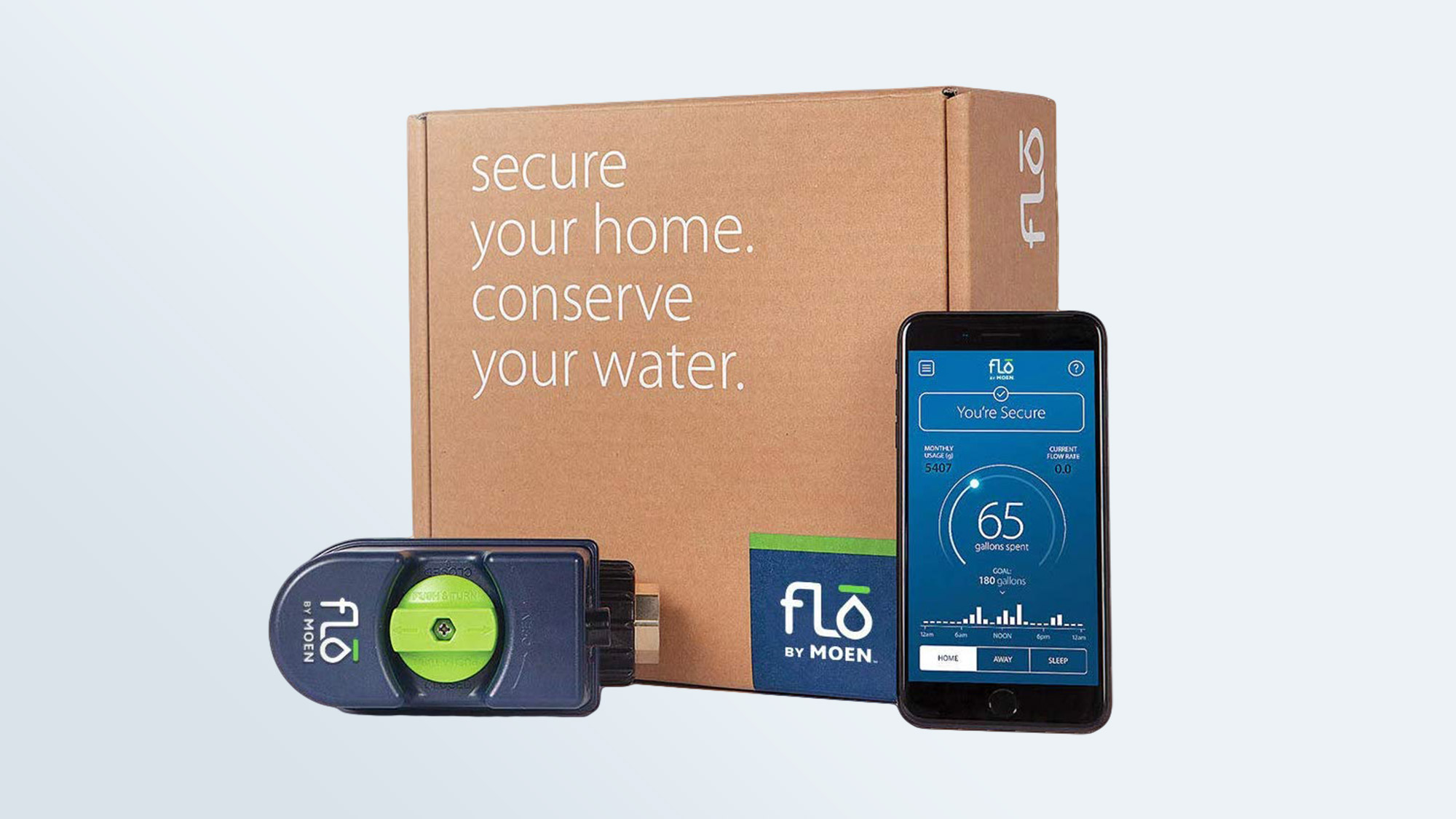
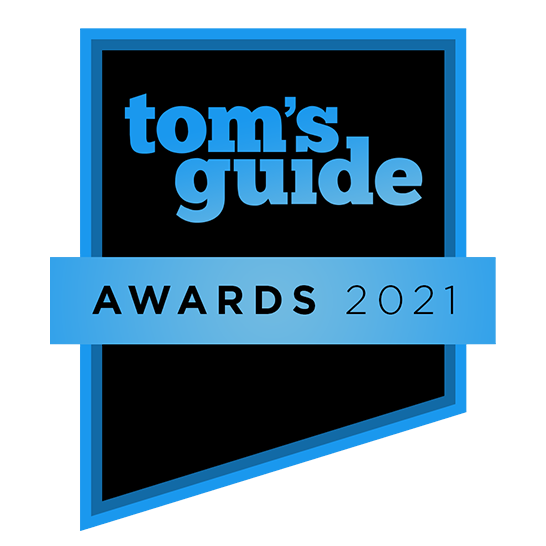
5. Flo by Moen
Specifications
Reasons to buy
Reasons to avoid
The Flo by Moen monitors your water flow and can automatically shut off your water if it detects a major leak. In addition, the Flo checks your water pressure and temperature, and its app shows you how much water you're using per day. It also tells you what's using water, and it runs daily tests to determine if there's a water leak.
All users now get an Insurance Verification Letter, as well as the ability to see your water usage by fixture. If you opt for the FloProtect service ($5/month), you can get monitoring and live-chat support. FloProtect will also cover the cost of your deductible (up to $5,000) if there's water damage. The company also increased the length of its warranty to three years.
The Flo by Moen comes in three sizes, so it's compatible with 3/4 inch, 1-inch, and 1.25-inch water lines. Customers can purchase an optional battery backup ($249), which will provide up to three days of protection if power gets shut off.
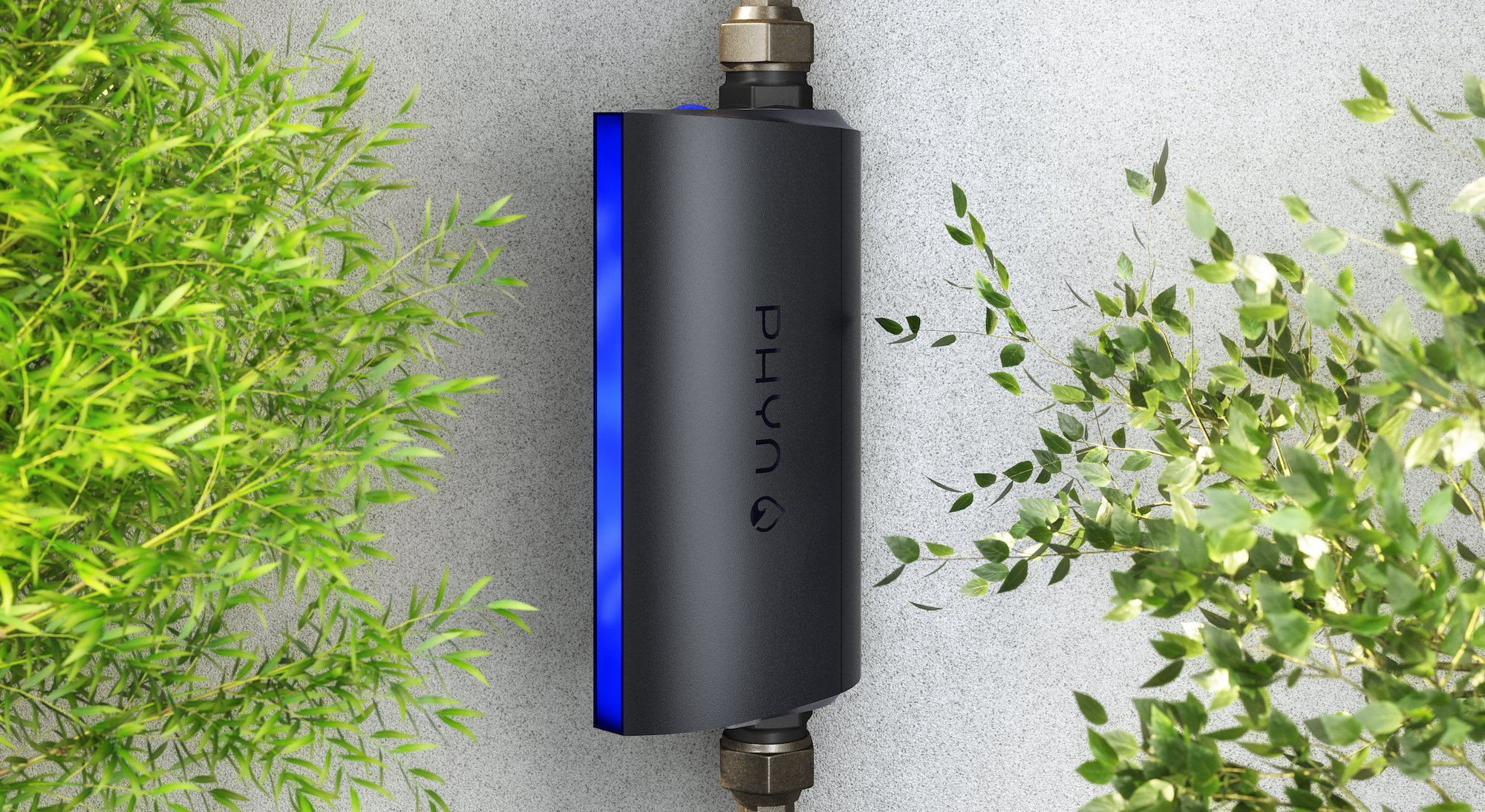
Best no-subscription shutoff valve
6. Phyn Plus v2 Smart Water Assistant
Specifications
Reasons to buy
Reasons to avoid
Not only can the Phyn Plus Smart Water Assistant alert you if there's a leak, but it can also automatically shut off the water coming into your home, which is why it's the best water leak detector with a shutoff valve. This second-generation Phyn Plus is 25% smaller than the original model, so it should be easier to fit into tighter spaces. It's also about $200 less expensive, too.
Phyn's super-smart water assistant has a series of blue LEDs along one edge that give the illusion of flowing water. Inside the device is a water-flow sensor, as well as some interesting algorithms that can detect leaks throughout your house based on water pressure. It can even tell the difference between a toilet flushing and a drip from a faucet, and give you insights into how much water you're using. So, you don't need to install remote sensors throughout your house.
The Phyn Plus can be installed indoors or outdoors, and works with Alexa, Google Assistant and IFTTT. Unlike the Flo by Moen, there are no additional subscription fees. However, it has to be plugged in to work, and there's no battery backup.
Easiest to install
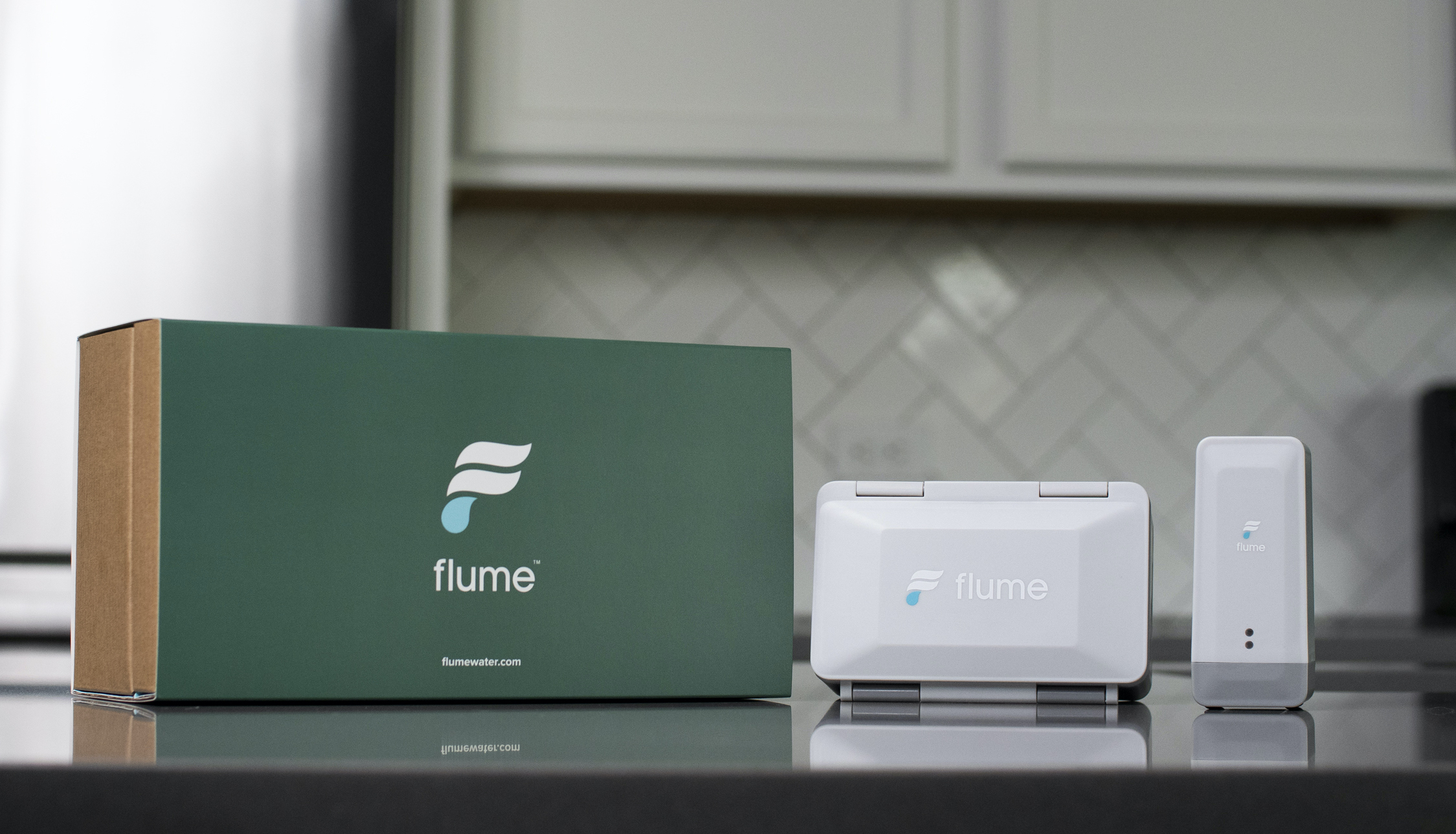
7. Flume 2
Specifications
Reasons to buy
Reasons to avoid
The Flume 2 Smart Home Water Monitor & Water Leak Detector straps around your water line — no plumber necessary — and connects to a Wi-Fi bridge to tell you based on the water flow and pressure if there's a leak somewhere in your home.
More than that, the Flume 2 can also analyze your water usage. Flume also removed its subscription fees, so you can get more granular data on specific appliances and faucets, and help you create daily and weekly budgets for water consumption. It can also provide indoor vs. outdoor water use, let you set up custom alerts, and gives you 15% off leak repair services from Angi.
Sump pump monitor
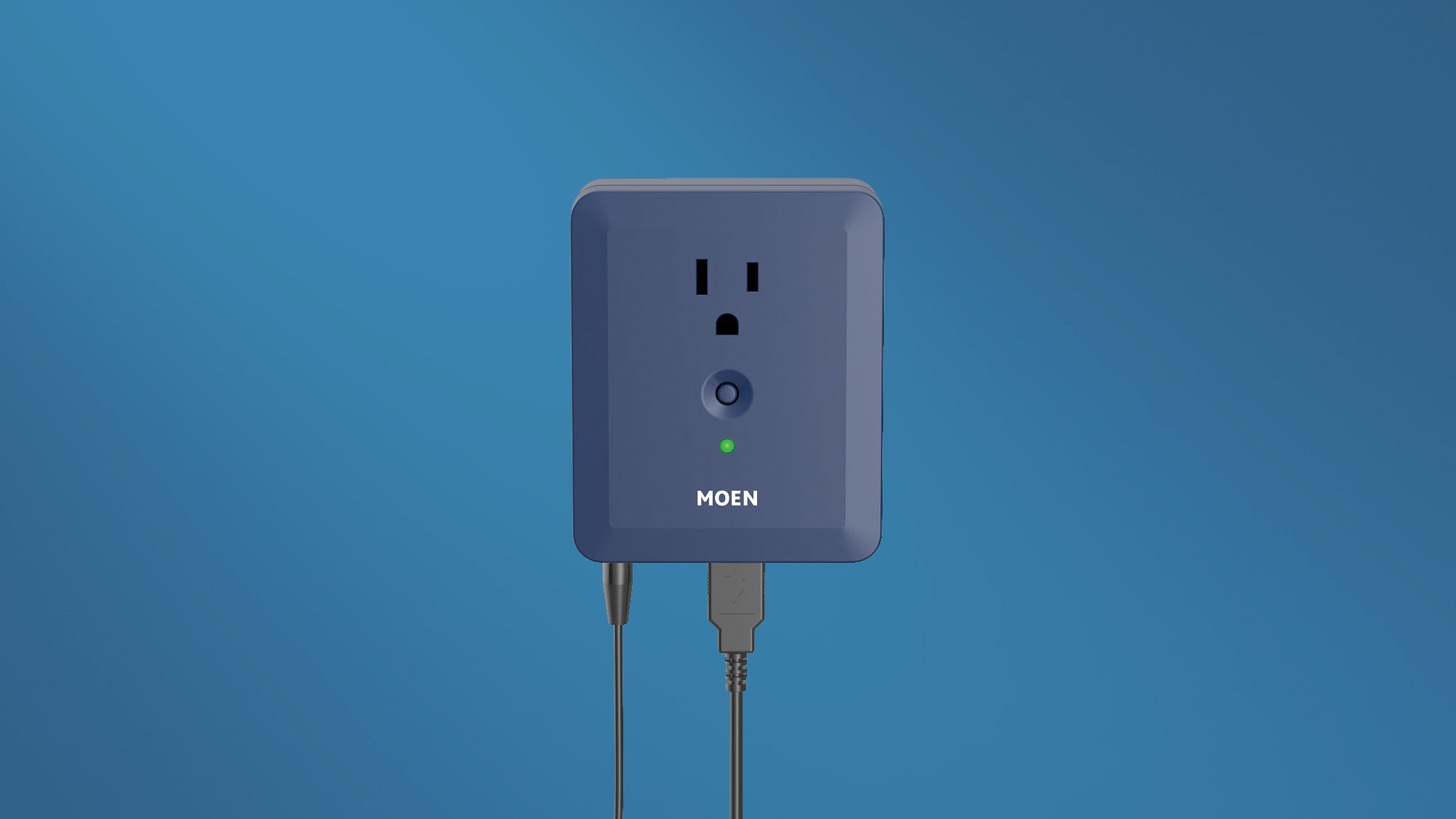
8. Moen Smart Sump Pump Monitor
Specifications
Reasons to buy
Reasons to avoid
One of the best ways to prevent your basement from flooding is to install a sump pump — but what happens if the sump pump fails and you don't know about it? The Moen Smart Sump Pump Monitor isn't a water leak detector per se, but it will keep tabs on your sump pump and alert you if it thinks anything is amiss. The monitor comes with a 10-foot smart sensor that monitors the water level in the sump area, a 6' Remote Leak Sensing Disc, and a 9-Volt battery that sounds an alarm if the power goes out.
In addition to water levels, the monitor also checks humidity levels — to warn you of any potential mold issues — and the temperature around the sump pump to alert you to any freeze warnings. And all you have to do is to plug it into your sump pump.
What to look for when buying a water leak detector
Water leak detectors fall generally into two categories: those which can shut off your water, and those that can’t. The latter are generally inexpensive — less than $100 — and will send an alert to your smartphone when they sense water. However, it's then up to you to turn off your water, which can be a problem if you're not at home. Those that have shutoff controls typically cost upward of $400 and require a plumber to install, but could be worth the investment, as they'll not only help reduce catastrophic damage, but can also help lower your monthly insurance bill.
Regardless of the type of water leak detector you purchase, here are a few things you need to consider before you buy.
Do you want something that can shut off your water?
While all water leak detectors will (or should) alert you when there's a water leak, only some will also take the next step of shutting off your main water supply, to limit the amount of water that leaks out. These models, though, often cost more than $400, and must be professionally installed, unless you're really handy with plumbing. However, some insurance companies will lower your deductible if you have one installed, which can defray the cost over time.
Do you want to monitor your water usage?
Because of climate change, some areas of the country are experiencing water shortages, and are seeing their water rates go up as well. If you want to be more conscious of how you're using your water — or simply want your bill to go down — some water leak detectors can tell you which of your appliances and faucets account for the most water use.
Battery or plug-in?
Some water leak detectors run on batteries, while others need to be plugged in; the former type makes it easier for the detectors to fit into locations that are far from an outlet, but their batteries will need to be replaced every year or so.
Do you want a built-in alarm?
A detector with a built-in alarm will sound a siren, so that you can hear where the leak is coming from, without needing your smartphone. This is a really handy feature, and one we recomment.
Smart-home integration
While not a necessity, if a water leak detector works with other smart- home systems, such as Alexa or Google Home, you can program a routine to have a light flash in your house when there's a water leak, or increase the temperature if there's a risk of water lines freezing.
If you detect a leak, you'll want to get it repaired as soon as possible as it can make a huge impact on your bills. Check out these 9 ways you could be wasting water and not know it.
Common sources of water leaks
Once you purchase a water leak detector, you'll want to place them in the areas most likely subject to water leaks. These can include the following:
- Hot water heater
- Toilets
- Sink drains
- Washing machine
- Dishwasher
Place the water leak detector near the base of the items listed above; that way, if there's a leak from a drain or your toilet, the water will hit the detector before anything else.
Many times, leaks can occur when a pipe gets clogged and water backs up, which is why it's important to know how to unclog a shower drain and how to unclog a toilet to prevent this from happening in the first place.
You should also keep in mind that leaks can occur in places where it's hard to put a water leak detector, such as pipes in your wall, in your basement, or leading to an outdoor faucet.
Plumbing tips and tricks
While they can be live savers, plumbers aren't necessarily the cheapest expense, so it's good to know how to make some simple repairs yourself. Here are a few plumbing-related how-tos, so you can save yourself a few bucks. Of course, if you're ever unsure, consult a professional.
- How to fix a leaky bathtub faucet
- How to winterize your sprinkler system
- How to bleed a radiator
- How to unclog a shower drain
More from Tom's Guide
Sign up to get the BEST of Tom's Guide direct to your inbox.
Get instant access to breaking news, the hottest reviews, great deals and helpful tips.

Michael A. Prospero is the U.S. Editor-in-Chief for Tom’s Guide. He oversees all evergreen content and oversees the Homes, Smart Home, and Fitness/Wearables categories for the site. In his spare time, he also tests out the latest drones, electric scooters, and smart home gadgets, such as video doorbells. Before his tenure at Tom's Guide, he was the Reviews Editor for Laptop Magazine, a reporter at Fast Company, the Times of Trenton, and, many eons back, an intern at George magazine. He received his undergraduate degree from Boston College, where he worked on the campus newspaper The Heights, and then attended the Columbia University school of Journalism. When he’s not testing out the latest running watch, electric scooter, or skiing or training for a marathon, he’s probably using the latest sous vide machine, smoker, or pizza oven, to the delight — or chagrin — of his family.
